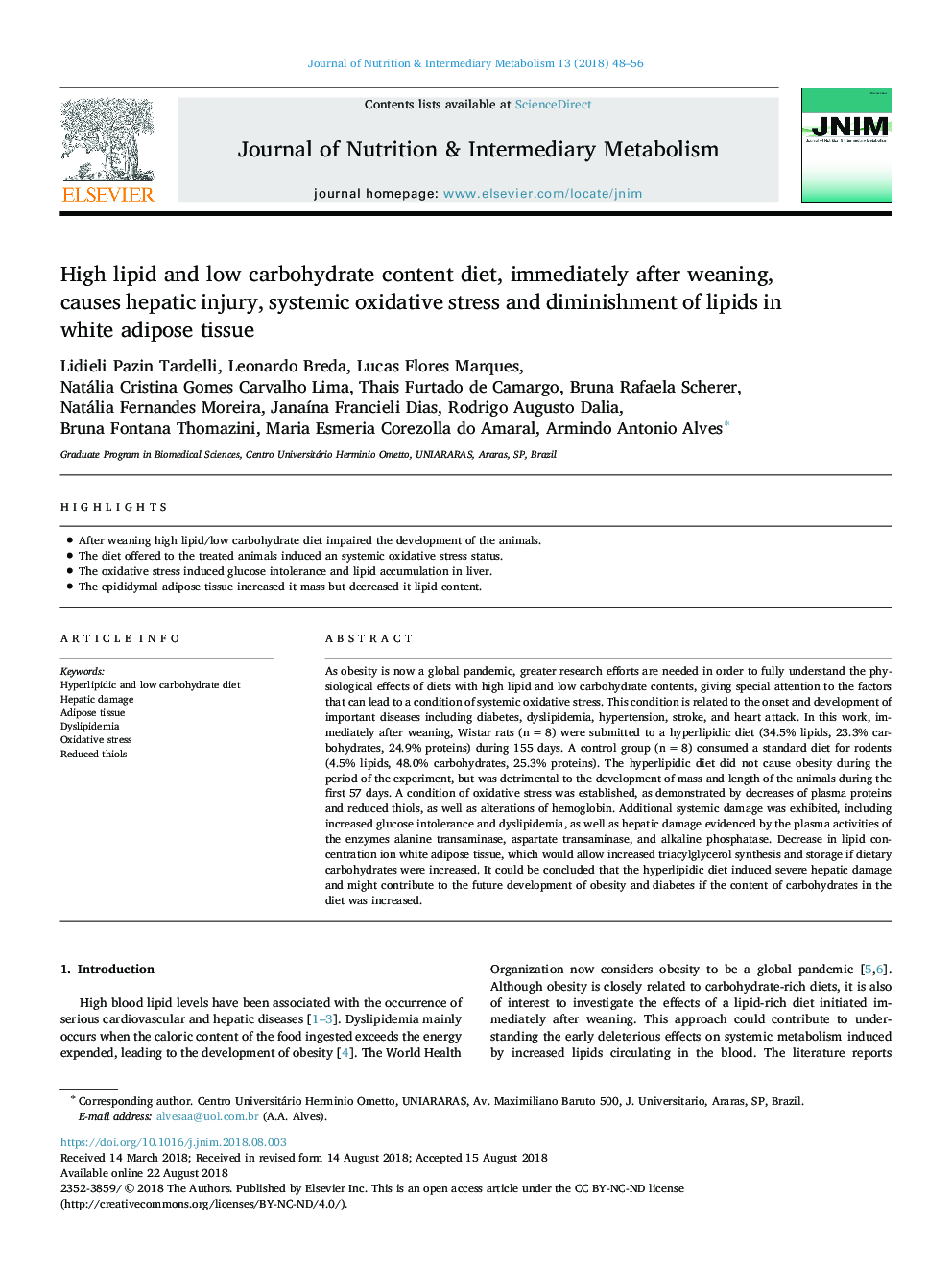| Article ID | Journal | Published Year | Pages | File Type |
|---|---|---|---|---|
| 9955194 | Journal of Nutrition & Intermediary Metabolism | 2018 | 9 Pages |
Abstract
As obesity is now a global pandemic, greater research efforts are needed in order to fully understand the physiological effects of diets with high lipid and low carbohydrate contents, giving special attention to the factors that can lead to a condition of systemic oxidative stress. This condition is related to the onset and development of important diseases including diabetes, dyslipidemia, hypertension, stroke, and heart attack. In this work, immediately after weaning, Wistar rats (nâ¯=â¯8) were submitted to a hyperlipidic diet (34.5% lipids, 23.3% carbohydrates, 24.9% proteins) during 155 days. A control group (nâ¯=â¯8) consumed a standard diet for rodents (4.5% lipids, 48.0% carbohydrates, 25.3% proteins). The hyperlipidic diet did not cause obesity during the period of the experiment, but was detrimental to the development of mass and length of the animals during the first 57 days. A condition of oxidative stress was established, as demonstrated by decreases of plasma proteins and reduced thiols, as well as alterations of hemoglobin. Additional systemic damage was exhibited, including increased glucose intolerance and dyslipidemia, as well as hepatic damage evidenced by the plasma activities of the enzymes alanine transaminase, aspartate transaminase, and alkaline phosphatase. Decrease in lipid concentration ion white adipose tissue, which would allow increased triacylglycerol synthesis and storage if dietary carbohydrates were increased. It could be concluded that the hyperlipidic diet induced severe hepatic damage and might contribute to the future development of obesity and diabetes if the content of carbohydrates in the diet was increased.
Related Topics
Life Sciences
Biochemistry, Genetics and Molecular Biology
Endocrinology
Authors
Lidieli Pazin Tardelli, Leonardo Breda, Lucas Flores Marques, Natália Cristina Gomes Carvalho Lima, Thais Furtado de Camargo, Bruna Rafaela Scherer, Natália Fernandes Moreira, JanaÃna Francieli Dias, Rodrigo Augusto Dalia, Bruna Fontana Thomazini,
